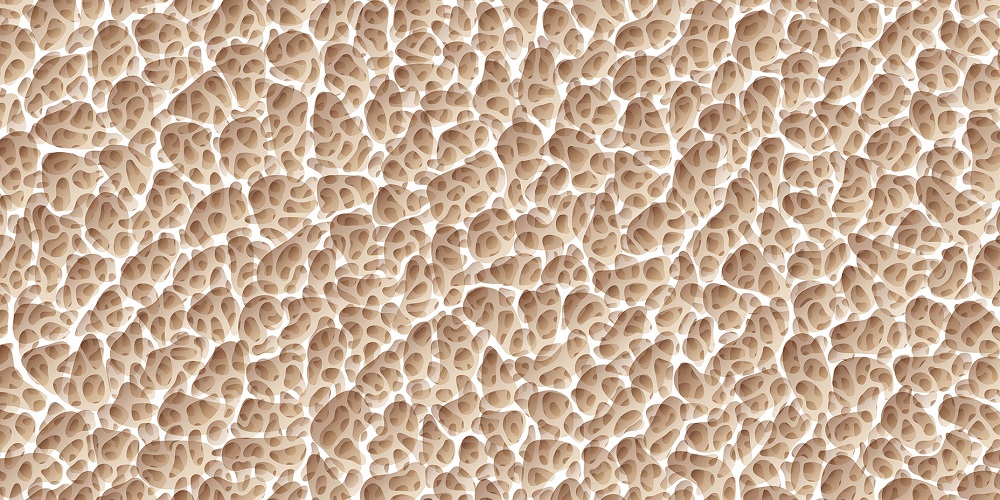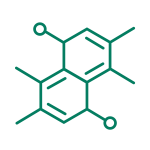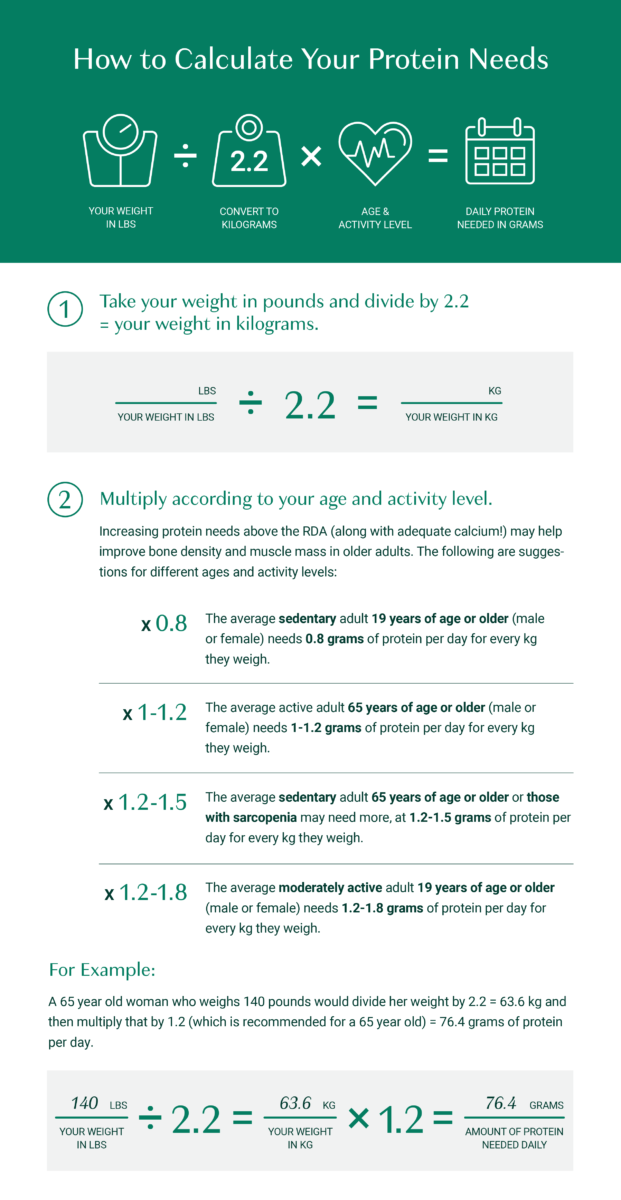The Fundamentals of Protein and Bone Health | How Protein Benefits Bone Health | Provides the Structural Framework for Bone | Increases Insulin-Like Growth Factor 1 Levels | Crucial for Your Muscle Mass and to Prevent Sarcopenia | Calcium and Protein Work Together | Debunking the Acid Ash Hypothesis | How Much Protein Do You Need? | Top Food Sources of Protein | Protein and Bone Health Takeaways
There’s a common misconception that a high-protein diet is bad for bone health.
But nothing could be further from the truth! In fact, years of research show that getting plenty of protein is crucial for bone density — provided you get enough of a key mineral.
That’s why we’re taking a deep dive into the research on protein and bone health, including the truth behind the much debated “acid-ash hypothesis.” We’ll also break down how calcium and protein work together, exactly how much protein you need, and the best places to get it.
So let’s get started!

The Fundamentals of Protein and Bone Health
Proteins are your body’s “building blocks.” In fact, they form the foundation of every living thing! But what are proteins, exactly?
Under a microscope, proteins are made out of long chains of amino acids linked together like lego blocks. All told, there are 20 amino acids1 needed for metabolism and human growth.
Eleven of these are classified as nonessential, meaning your body can produce them. Nine of these are classified as essential, meaning your body can’t produce them, and you have to get them through your diet.
And when it comes to your bones, protein is especially important. Protein makes up roughly one-third of your bone mass2 (the amount of protein your bones contain) and half of your bone volume (the amount of space protein takes up).
The protein in your bones is continuously broken down and built back up, as part of your bone remodeling process. Unfortunately, the protein that’s broken down isn’t reabsorbed and reused. That’s why you need a daily supply of protein to maintain your bone density. (We’ll cover the ideal amount a little later on).

How Protein Benefits Bone Health
You know now how protein is crucial for your bone remodeling process. But the bone health benefits don’t stop there; here are three additional ways protein provides vital support for your bones.

Provides the Structural Framework for Bone
Your extracellular bone matrix is made primarily of collagen3, and yes, collagen is a protein. This soft collagen matrix is like a flexible framework for bone.
Calcium hardens this framework and adds strength to it. Together, collagen and calcium make your bones strong, yet flexible enough to withstand stress.

Increases Insulin-Like Growth Factor 1 Levels
Calcium and protein complement one another. When you get adequate calcium in your diet, a higher protein intake benefits bone mineral density and reduces hip fracture risk.
Protein stimulates the production of insulin-like growth factor 1 (IGF-1)4, a hormone that’s key to bone growth5. IGF-1 boosts calcium absorption and enhances muscle tissue and strength, which synergistically supports bone strength.
Remember, your muscles and your bones are tightly intertwined — that’s why it’s called your musculoskeletal system!

Supports Muscle Mass and Prevents Sarcopenia
When you don’t consume enough protein6, your ability to build new muscle and replace damaged muscle is compromised. Over time, this leads to a lower rate of muscle protein synthesis and a loss of muscle mass.
What’s more, not being proactive about getting enough protein as you age can lead to sarcopenia7 — a condition where your muscle mass shrinks and your muscle cells are replaced by fat.
As mentioned earlier, your muscles and your bones are closely linked. After all, muscle contractions put stress on your bones and stimulate them to rebuild.
As you age, your ability to use the protein you consume to build muscle8 (called your anabolic response) lessens. That’s why older adults need to consume more protein than young adults to maintain muscle mass.
Calcium and Protein Work Together
Of course, we can’t talk about bone health and not mention calcium. As you know, it’s a key mineral for bone health. In fact, both calcium and protein are major components of bone tissue. Research shows these nutrients complement one another.9
Specifically, when you get adequate calcium in your diet, a higher protein intake benefits bone mineral density (BMD) and reduces hip fracture risk10. That’s why you need a balance of calcium and protein11 for strong, healthy bones.

Debunking the Acid-Ash Hypothesis
There’s been much debate over the “acid-ash hypothesis.” In brief, this hypothesis suggests that high protein intake (particularly from animal sources) leads to increased acid production and bone resorption. This is attributed to high levels of sulfur-containing amino acids in animal proteins, which generate an acid load.
The idea is that the body tries to neutralize this “acid load” by recruiting calcium from bone, which leads to hypercalciuria (excess calcium in urine), bone loss, and osteoporosis.
This theory has made many wonder whether protein weakens bones.
Fortunately, it doesn’t. You see, your body is well-equipped to regulate your acid load.12 Your kidneys and lungs work as a team to maintain acid-base homeostasis13 — a healthy balance of acid and alkaline (neutral) substances in your body.
Generally, excess acid from food is easily dealt with. (Note there are exceptions to this rule, like for people with chronic kidney disease.14)
So acid production from a high-protein diet15 is unlikely to affect this balance.

So How Much Protein Do You Need?
The current recommended daily allowance (RDA) for protein intake is 0.8 grams per kg of body weight.16 But this RDA was set over a decade ago, and experts now believe it’s not an adequate amount.
The recommendations were based on studies conducted in young, healthy adults. So the RDA fails to take into account the physiological changes that occur with aging such as sarcopenia and the reduced ability to make muscle.
Bearing these points in mind, more recent research recommends that older adults consume 1–1.5 grams of protein per kg of body weight.
One double-blind randomized controlled trial17 on 120 adults ages 70 to 85 ate between 0.8 grams to 1.5 grams of protein per kilogram of body weight each day. After three months, the participants who received 1.5 g of protein per kg a day experienced the most beneficial effects (measured by muscle mass and walking speed).
For the most accurate calculation of your protein needs, you must take your age, body weight, and activity level into consideration. That sounds complicated, but don’t worry! The visual below makes it easy for you.

Top Food Sources of Protein
What makes for a “high-quality” protein?
There are several factors to take into consideration, including the amount of protein per gram, whether it’s a complete or incomplete protein, and how it’s raised (grass fed vs. grain fed, organic vs. factory farmed, etc).
Let’s take a closer look at how the different types of protein stack up.
Animal Protein vs. Vegetarian Protein
Animal protein has a couple of advantages over vegetarian protein.
If you look at the amount of protein per gram, animal protein wins out. In general, vegetarian protein sources fall short of the protein content animal sources offer so you need to eat more calories with plant proteins, which can be an issue if you’re concerned about controlling body fat.
Second, all animal protein sources are considered complete proteins. That means they provide all nine essential amino acids you need to get from your diet. On the other hand, vegetarian proteins are typically incomplete, meaning they lack one or two essential amino acids. (Note there are a few exceptions to this rule, like quinoa and soy.)
If you’re a vegetarian or vegan, the key is to consume a variety of fruits, vegetables, grains, and legumes to ensure you get all the essential amino acids. For a more in-depth look at vegetarian protein, visit this page.
Download our printable PDF of 10 Great Sources of Protein for Healthy Bones.
Protein and Bone Health Takeaways
Don’t shy away from protein. After all, the acid-ash hypothesis18 is unsupported by science.
Protein is a crucial component of every cell in your body. You need it to repair and build tissues, and it’s a key building block for cartilage, blood, skin, muscles, and bones.
In fact, the latest expert consensus19 stresses the importance of protein for strong, healthy bones!
But as you know, you need more than protein to build strong bones — you need calcium too. If you’re serious about your bone health, it’s important to also take a calcium supplement that’s been proven to increase bone density, like AlgaeCal Plus.
No matter your diet or lifestyle, there are plenty of protein options for you! Just remember to think about what you don’t want from protein too. Pesticides, herbicides, hormones, antibiotics, and preservatives won’t benefit you or your bones. So make sure you choose high-quality, organic, grass-fed, and wild-caught options whenever possible.
References
1. J Miguel Martínez Sanz, A Norte Navarro, et al. An Overview on Essential Amino Acids and Branched Chain Amino Acids, Nutrition and Enhanced Sports Performance (Second Edition), Academic Press, 2019, Pages 509-519.
2. Robert P Heaney, Donald K Layman, Amount and type of protein influences bone health, The American Journal of Clinical Nutrition, Volume 87, Issue 5, May 2008, Pages 1567S–1570S.
3. Florencio-Silva, et al. Biology of Bone Tissue: Structure, Function, and Factors That Influence Bone Cells, BioMed Research International, Volume 2015, Article ID 421746.
4. Handbook of Biologically Active Peptides, Second Ed. 2013
5. Kerstetter, J. E., Kenny, A. M., & Insogna, K. L. (2011). Dietary protein and skeletal health: a review of recent human research. Current opinion in lipidology, 22(1), 16–20.
6. Carbone, J. W., & Pasiakos, S. M. (2019). Dietary Protein and Muscle Mass: Translating Science to Application and Health Benefit. Nutrients, 11(5), 1136.
7. Santilli V., Bernetti A., et al. Clinical Definition of Sarcopenia. Clinical Cases of Mineral Bone Metabolism. 2014 Sep-Dec; 11(3): 177–180
8. Wall, B. T., Gorissen, S. H., Pennings, B., Koopman, R., Groen, B. B., Verdijk, L. B., & van Loon, L. J. (2015). Aging Is Accompanied by a Blunted Muscle Protein Synthetic Response to Protein Ingestion. PloS one, 10(11), e0140903.
9. Bess Dawson-Hughes, Susan S Harris, Calcium intake influences the association of protein intake with rates of bone loss in elderly men and women, The American Journal of Clinical Nutrition, Volume 75, Issue 4, April 2002, Pages 773–779
10. Rizzoli, R., Biver, E., Bonjour, JP. et al. Benefits and safety of dietary protein for bone health—an expert consensus paper endorsed by the European Society for Clinical and Economical Aspects of Osteopororosis, Osteoarthritis, and Musculoskeletal Diseases and by the International Osteoporosis Foundation. Osteoporos Int 29, 1933–1948 (2018)
11. Heaney, R. Effects of Protein on the Calcium Economy, International Congress Series, Volume 1297, March 2007, 191-197
12. Fenton, T., Lyon, A., et al. Meta-Analysis of the Effect of the Acid-Ash Hypothesis of Osteoporosis on Calcium Balance, Journal of Bone and Mineral Research, Volume 24, Issue 11, Dec. 2009, 1835-1840
13. Hamm, L. L., Nakhoul, N., & Hering-Smith, K. S. (2015). Acid-Base Homeostasis. Clinical journal of the American Society of Nephrology : CJASN, 10 (12), 2232–2242.
14. T. Banerjee, D. C. Crews, D. E. Wesson, A. M. Tilea, R. Saran, N. Rios-Burrows, D. E. Williams, N. R. Powe. High Dietary Acid Load Predicts ESRD among Adults with CKD. Journal of the American Society of Nephrology, 2015; DOI: 10.1681/ASN.2014040332
15. Kerstetter, J. E., Kenny, A. M., & Insogna, K. L. (2011). Dietary protein and skeletal health: a review of recent human research. Current opinion in lipidology, 22(1), 16–20.
17. Yongsoon Park, Jeong-Eun Choi, Hwan-Sik Hwang, Protein supplementation improves muscle mass and physical performance in undernourished prefrail and frail elderly subjects, The American Journal of Clinical Nutrition, Volume 108, Issue 5, November 2018, Pages 1026–1033
18. Fenton TR, Tough SC, Lyon AW, Eliasziw M, Hanley DA. Causal assessment of dietary acid load and bone disease: a systematic review & meta-analysis applying Hill’s epidemiologic criteria for causality. Nutr J. 2011 Apr 30;10:41. doi: 10.1186/1475-2891-10-41.
19. Rizzoli, R., Biver, E., Bonjour, JP. et al.Benefits and safety of dietary protein for bone health—an expert consensus paper endorsed by the European Society for Clinical and Economical Aspects of Osteopororosis, Osteoarthritis, and Musculoskeletal Diseases and by the International Osteoporosis Foundation. Osteoporos Int 29, 1933–1948 (2018)





Govind Sharma
September 21, 2014 , 5:08 amI like to read more. Thank you very much!